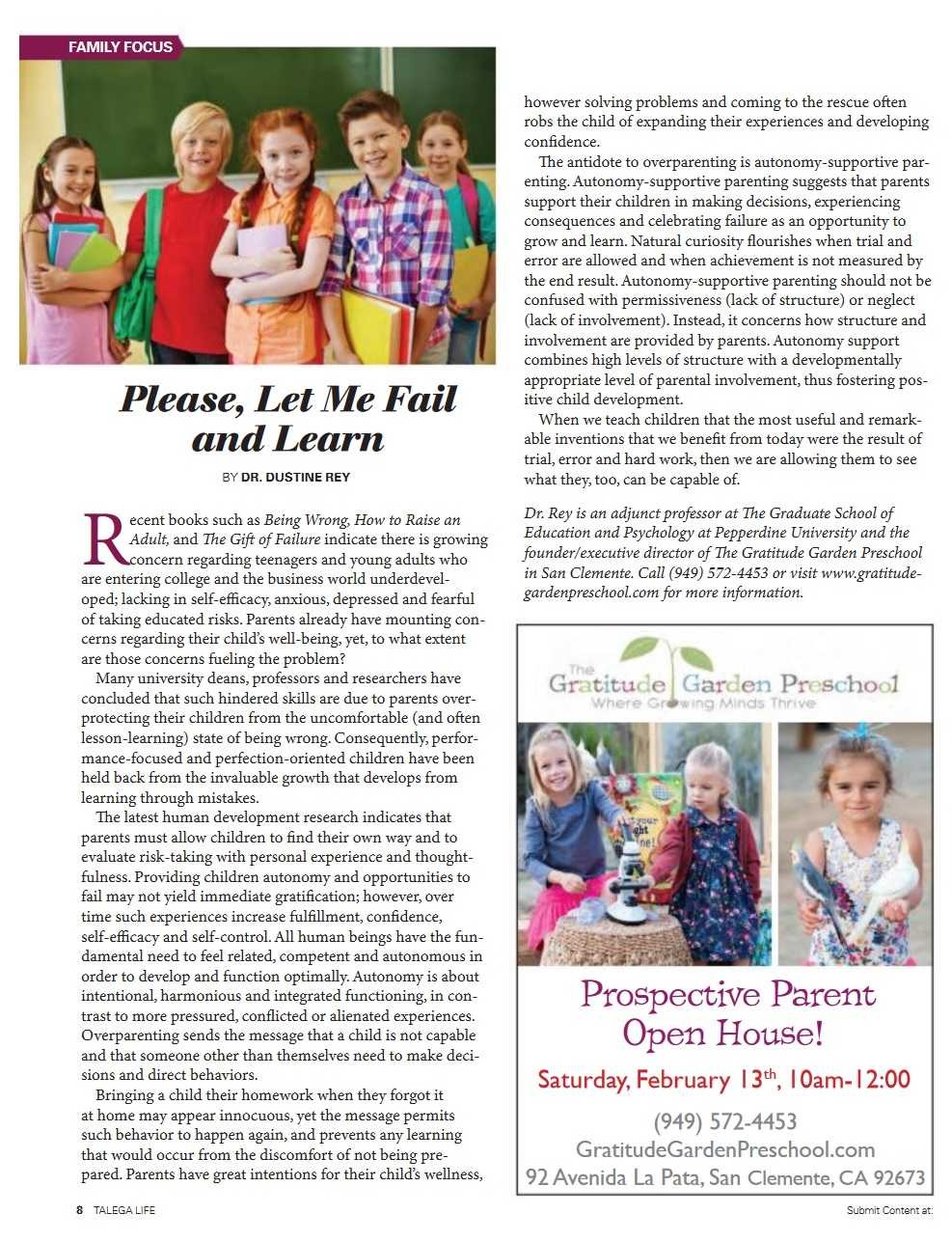Recent books such as Being Wrong, How to Raise an Adult, and The Gift of Failure indicate there is a growing concern regarding teenagers and young adults who are coming to college and the business world as undeveloped, lacking in self-efficacy, anxious and depressed, and fearful of taking educated risks. Parents already have mounting concerns regarding their child’s well-being; yet, to what extent are those concerns fueling the problem?
Many university Deans, professors, and researchers have concluded that such hindered skills are due to parents over-protecting their children from the uncomfortable (and often lesson-learning) state of being wrong. Consequently, performance focused and perfection-oriented children have been held back from the invaluable growth that develops from learning through mistakes.
The latest human development research indicates that parents must allow children to find their own way and to evaluate risk taking with personal experience and thoughtfulness. Providing children autonomy and opportunities to fail may not yield immediate gratification; however, over time such experiences increase fulfillment, confidence, self-efficacy, and self-control. All human beings have the fundamental need to feel related, competent, and autonomous in order to develop and function optimally. Autonomy is about intentional, harmonious, and integrated functioning; in contrast to more pressured, conflicted, or alienated experiences. Over parenting sends the message that a child is not capable and that someone outside of them self needs to make decisions and direct behaviors. Bringing a child their homework when they forgot it at home may appear innocuous, yet the message permits such behavior to happen again and prevents any learning that would occur from the discomfort of not being prepared. Parents have great intentions for their child’s wellness, however solving problems and coming to the rescue often robs the child of expanding their experiences and developing confidence to do the same action as the parent.
The antidote to over-parenting, is autonomy-supportive parenting. Autonomy-supportive parenting suggests that parents support their children in making decisions, experiencing consequences, and celebrating failure as an opportunity to grow and learn. Natural curiosity flourishes when trial and error are allowed and when achievement is not measured by the end result. Autonomy supportive parenting should not be confused with permissiveness (lack of structure) or neglect (lack of involvement). Instead, it concerns how structure and involvement are provided by parents. Autonomy support combines high levels of structure with a developmentally appropriate level of parental involvement; thus fostering positive child development.
When we teach children that the most useful and remarkable inventions that we enjoy and live with today were the result of trial, error, and hard work, then we are allowing them to see what they too can be capable of.

